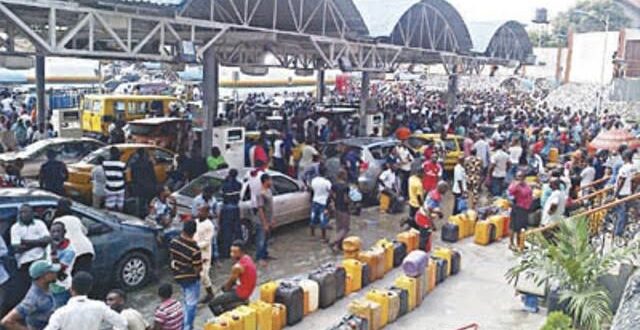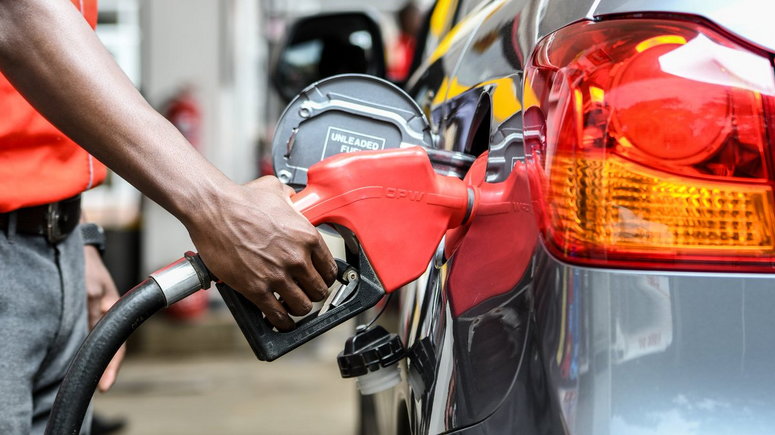The first announcement of the new national government led by President Bola Tinubu, has thrown the country into chaos. Africa’s largest oil producer has been wobbling, over the decision to totally remove fuel subsidy. The inauguration, held on Monday, May 29, which ushered in the new administration, with first controversial policy, which prompt return to high prices and long queues nationwide. The effect is enormous, as commercial buses’ drivers have skyrocketed the prices of transportation fees due to high fuel price, everyone in the country is either directly or indirectly makes use of fuel in the course of daily activities.
The policy which takes effect on June 1, has continued to raise eyebrows on the possible and further effect such policy could have. The prices which jump from 185 naira to between range of 350 to 550 naira, while many Nigerians on social media, have taken their handles to claim that they bought above the prices above. Nigerians have frown at the move, in a time where the country is looking to salvage woes of political and economic problems bedeviling the progressive development of the country, it is a move that Nigerians are yet to see the effect, they are still groaning with the current state of things.
In Nigeria, about 70 million litres of fuel are consumed daily, this is withered by population of more than 200 million people, while a higher percentage of this number live in poverty, it underscores the economic woes which has been eaten the country up for long time. While Nigerian government largely relied on Europe to refined oil and import it back to Nigeria, a process that masterminded high cost of fuel, but nevertheless the government takes the responsibility of paying the cost as subsidies to reduce the cost to be paid by consumers, this has been the case until now.
Related articles:
Fuel subsidy was first introduced in Nigeria, in the 1970s to cushion the effect of rising global oil prices, the then military government led by Olusegun Obasanjo formalized the subsidy in 1977 when it promulgated the Price Control Act which regulated prices of items including fuel. Subsequent administrations have sought to remove fuel subsidy due to the high cost of servicing it, which could affect finance in running of government. In January 2012, the former President, Goodluck Jonathan announced subsidy removal, such action sparked nationwide outcry, protests ranging from different groups in Nigeria, extending to opposition of political party leaders, including Tinubu. The government heed to the protests and maintained the existing protocol.
Having removed fuel subsidy, Nigerians will be leaning to the world’s largest single-terrain refinery, which was commissioned last week, in Lagos, owned by Africa’s richest man, Aliko Dangote, to boost oil production and mitigate the reliance of imports. What Nigerians are looking at, is the immediate effect it can have, in solving the existing problems, without further accumulation and pilling up pressure on citizens, there have to policy to mitigate the effect, without necessary causing national chaos and hardship on citizens, from economic point of view, it could be welcoming development, but the government has to offer alternative to reduce reliance on fuel, for citizens not to feel the heat of the policy.
The Nigeria National Petroleum Corporation [NNPC] has confirmed the change in service following the removal of fuel subsidy by President Bola Tinubu. In a statement by its Chief Corporate Communication Officer, Garba Deen Muhammed on Wednesday, reads “NNPC Limited wishes to inform our esteemed customers that we have adjusted our pump price to PMS across our retail outlets, in line with the current market realities.” He continued “As we strive to provide you the quality service we are known for, it is pertinent to note that prices will continue to fluctuate to reflect market dynamics.” This is the reality on the ground for Nigerians, it is about how long they can endure the removal of fuel subsidy and the effect.

















